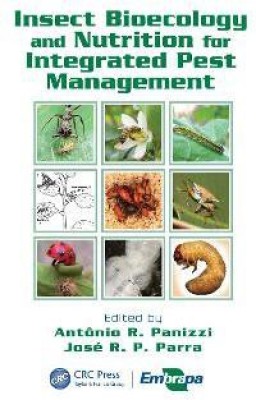Insect Bioecology and Nutrition for Integrated Pest Management(English, Hardcover, unknown)
Quick Overview
Product Price Comparison
The field of insect nutritional ecology has been defined by how insects deal with nutritional and non-nutritional compounds, and how these compounds influence their biology in evolutionary time. In contrast, Insect Bioecology and Nutrition for Integrated Pest Management presents these entomological concepts within the framework of integrated pest management (IPM). It specifically addresses bioecology and insect nutrition in modern agriculture. Written for graduate students and professionals in entomology, this book covers neotropical information in three sections: General Aspects: Basic bioecology and insect nutrition; artificial diets; insect/plant interactions; insect symbionts; the interface of chemical ecology with the food; and insect cannibalism Specific Aspects: Specific feeding guilds of insects including ants, social bees, leaf chewers, seed suckers, seed chewers, root feeders, gall makers, detritivorous feeders, pests of storage grains, fruit flies, aphids, endo- and ectoparasitoids, predators, crisopids, and hematophagous insects Applied Aspects: Host plant resistance and the design of IPM programs in the context of insect bioecology and nutrition Much of the research on which these chapters were written was done in Brazil and based on its neotropical fauna. The complexity and diversity of the neotropics provides enough data that readers from all zoogeographical regions can readily translate the information in this book to their specific conditions. The book's value as an entry point for further research is enhanced by the inclusion of approximately 4,000 references.


